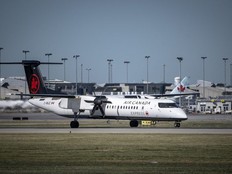'No way to mince words' — tariffs will kill 4,300 Windsor jobs in two weeks

Article content
A grim forecast from the Conference Board of Canada warns that new U.S. tariffs — set to take effect Wednesday — will cause a rapid 50-per-cent nosedive in auto exports and the decimation of 4,300 Windsor jobs.
About 160,000 jobs will be lost across Canada, according to the independent research group. Principal economist Richard Forbes told the Star the “devastation” in Windsor would occur within a couple of weeks.
“Windsor is going to bear the worst of the impacts from tariffs if they go ahead,” he said.
“There’s no way to mince words. It would be terrible for the City of Windsor.”
Confusion reigns while the world waits on edge for U.S. President Donald Trump’s next trade war attack.
Trump put across-the-board tariffs into effect on March 4, but scaled that back two days later to pause levies on products compliant with the Canada-U.S.-Mexico-Agreement (CUSMA).
The U.S. was expected to start imposing 25 per cent tariffs on automobiles and car part imports on Wednesday. But integration of the North American industry is causing uncertainty about how the tariffs will work.
The White House has said vehicles imported under CUSMA will only be tariffed on the value of content not made in the U.S. Some auto parts might also see tariff delays.
Trump has already imposed 25 per cent tariffs on steel and aluminum imports to the U.S. He was also expected to impose additional “reciprocal” tariffs this week.
The Canadian Chamber of Commerce has said Windsor will be the third-hardest hit jurisdiction in Canada, and Detroit will be one of the three worst-hit American cities, due to their heavily integrated auto industries.
The chamber said about 22 per cent of North American vehicles are produced by the interconnected supply chain between Michigan and Ontario. It noted that hundreds of thousands of other jobs are impacted by the auto sector.
The organization said estimates show the tariffs could add as much as $11,500 to the cost of a pickup truck.
“We’re severely disappointed in the U.S. administration’s dogged pursuit of trade policies that harm Americans and Canadians,” said chamber president and CEO Candace Laing.
The Conference Board of Canada released a report Monday stating that the tariff threat is already slowing Canada’s economic growth.
The organization forecasts that 160,000 jobs will be lost across Canada in the second quarter of 2025, with about half of those coming within the manufacturing sector. Real exports will drop by a third, according to the conference board.
Motor vehicle and parts exports will plummet by 50 per cent, “stifling business investment as many companies cut production, while delaying or cancelling investment plans.”
The conference board is still working on a city-level analysis of the coming fallout in different communities. But Forbes said it’s clear that Windsor will feel it fast.
In just the second quarter of 2025, Forbes said 25-per-cent tariffs would likely lead to the loss of 4,300 jobs in Windsor, where a quarter of the economy is tied to manufacturing.
“We’re thinking for a city like Windsor, where a lot of these jobs would be in manufacturing, most of the job losses would occur pretty quickly,” said Forbes.
“Like within a matter of a couple of weeks. That’s what we’re hearing from the automotive sector. They just wouldn’t be able to last too long before seeing mass layoffs.”
If the tariffs end up coming in below 25 per cent, he said the impact on jobs would decrease.
“Something smaller, we see lower impacts,” said Forbes. “But it would still be pretty steep at the Windsor level.”
He said the bright spot, if you can call it that, is the tariffs likely won’t last long.
“Obviously it’s anybody’s guess, but we did a scenario where we had widespread tariffs for three months,” said Forbes. “Our thinking was that it would be so damaging to both the U.S. and Canadian economies that it would be something short lived, and eventually we would reach an agreement after three months.”













Postmedia is committed to maintaining a lively but civil forum for discussion. Please keep comments relevant and respectful. Comments may take up to an hour to appear on the site. You will receive an email if there is a reply to your comment, an update to a thread you follow or if a user you follow comments. Visit our Community Guidelines for more information.